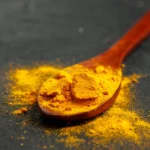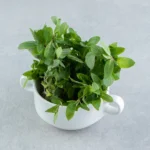Introduction:
In today’s fast-paced world, our skin often bears the brunt of pollution, stress, and chemical-laden skincare products. From stubborn acne to dryness and premature aging, skin problems have become a common concern for many. While modern treatments promise quick fixes, more people are turning to nature for gentle and lasting solutions.

Herbs, with their time-tested healing properties, offer a safe and effective way to treat a variety of skin problems without harsh side effects. Rooted in ancient traditions like Ayurveda, these natural remedies not only nourish the skin but also support overall well-being. Let’s explore how these powerful plants can help you achieve healthier, clearer skin naturally
Understanding Common Skin Problems
Our skin is a reflection of our internal health and the environment we live in. When it’s out of balance, it often shows through common skin problems that can affect not just our appearance, but also our confidence. Acne, for example, isn’t just a teenage issue it can persist into adulthood due to stress, hormonal imbalances, or diet. Conditions like eczema and psoriasis cause irritation, itching, and dryness, making everyday life uncomfortable. Then there’s hyperpigmentation, dark spots, and uneven tone that often follow sun exposure or inflammation.
Each of these skin problems has its own trigger, but many can be managed or even prevented with the right approach. Instead of masking symptoms with chemical treatments, herbs offer a gentle and holistic alternative. They address the root cause of skin problems by working from the inside out balancing the body, purifying the blood, and soothing inflammation. In the next section, we’ll look at some of the most effective herbs nature has to offer for restoring healthy, glowing skin.
Top Herbs for Skin Health
Nature has always provided us with powerful remedies, and when it comes to skin problems, herbs are some of the most effective and gentle healers. Unlike harsh chemicals, they work in harmony with your body to repair, soothe, and rejuvenate the skin from within. Whether you’re battling acne, dullness, or sensitivity, these herbs offer time-tested support for a wide range of skin problems.
 Neem: Known for its antibacterial and anti-inflammatory properties, neem is a go-to herb for acne and irritated skin. It helps cleanse pores and calm inflammation, making it ideal for oily or acne-prone skin.
Neem: Known for its antibacterial and anti-inflammatory properties, neem is a go-to herb for acne and irritated skin. It helps cleanse pores and calm inflammation, making it ideal for oily or acne-prone skin.
 Turmeric: This golden spice does more than add flavor—it fights off bacteria, reduces redness, and helps fade scars. It’s especially effective for skin problems linked to inflammation and uneven skin tone.
Turmeric: This golden spice does more than add flavor—it fights off bacteria, reduces redness, and helps fade scars. It’s especially effective for skin problems linked to inflammation and uneven skin tone.
 Aloe Vera: A universal skin soother, aloe vera hydrates dry skin, heals sunburns, and accelerates the healing of wounds or breakouts. It’s gentle enough for all skin types.
Aloe Vera: A universal skin soother, aloe vera hydrates dry skin, heals sunburns, and accelerates the healing of wounds or breakouts. It’s gentle enough for all skin types.
 Tulsi (Holy Basil): With its purifying and detoxifying qualities, tulsi helps manage skin allergies, fungal infections, and blemishes. It also supports the body’s stress response, which often impacts skin health.
Tulsi (Holy Basil): With its purifying and detoxifying qualities, tulsi helps manage skin allergies, fungal infections, and blemishes. It also supports the body’s stress response, which often impacts skin health.
Manjistha: Often used in Ayurveda, this powerful herb purifies the blood and promotes clear, radiant skin. It’s particularly useful for stubborn skin problems like pigmentation and chronic rashes.
Sandalwood: Known for its cooling effect, sandalwood reduces scars, soothes itching, and brightens the complexion. It’s great for calming irritated or inflamed skin.
Gotu Kola: This lesser-known herb boosts collagen production, helping with skin elasticity and healing. It’s perfect for mature skin and helps reduce the appearance of fine lines and scars.
Each of these herbs offers unique benefits and, when used regularly, can transform your skincare routine into a natural healing ritual. Whether used topically or internally, they bring balance and relief to many common skin problems.
How to Use These Herbs for Skin Problems
Incorporating herbs into your skincare routine doesn’t have to be complicated. With a little consistency and care, these natural ingredients can make a noticeable difference in managing skin problems. Whether you prefer homemade remedies or ready-made products, there are several ways to enjoy the benefits of these healing herbs.
1. DIY Face Masks & Packs
You can easily create simple, effective treatments at home. For example, mix turmeric with honey and yogurt for a brightening mask, or blend neem powder with rose water to combat acne. These natural packs help cleanse, soothe, and refresh the skin.
2. Herbal Toners & Cleansers
Tulsi and rose water make a great natural toner to tighten pores and balance oil. Aloe vera gel can be used as a daily moisturizer or a light cleanser for sensitive skin, especially when dealing with minor skin problems like rashes or redness.
3. Internal Detox with Herbal Teas or Supplements
Skin problems often start from within. Drinking teas made from manjistha, neem, or tulsi can help detoxify the blood, balance hormones, and reduce inflammation. These internal remedies support long-term skin health.
4. Ready-Made Herbal Products
If you prefer convenience, look for skincare products that use authentic herbal extracts without synthetic additives. Creams, soaps, and serums with sandalwood, gotu kola, or aloe vera can be both effective and gentle.
The key is to be patient and consistent. Herbal treatments may take a little longer to show results, but they work in harmony with your body to heal and restore your skin naturally. And when it comes to stubborn or recurring skin problems, nature often knows best.
Precautions and Tips When Using Herbs for Skin Problems
While herbs are generally safe and gentle, it’s still important to use them mindfully especially when dealing with sensitive skin or ongoing skin problems. Everyone’s skin is different, and what works for one person may not work the same way for another. Here are some helpful tips to get the best out of your herbal skincare journey:
1. Always Do a Patch Test
Before applying any new herb or homemade remedy to your face or body, test a small amount on your inner arm. Wait 24 hours to check for any irritation or allergic reaction. This is especially important if you have reactive or allergy-prone skin.
2. Use Fresh and High-Quality Ingredients
Whether it’s neem powder, turmeric, or aloe vera gel, make sure your herbs are fresh, organic, and free from additives. Poor-quality products can do more harm than good, especially when trying to treat skin problems naturally.
3. Be Consistent, But Not Excessive
Herbal remedies work best with regular use, but overdoing it can irritate your skin. Stick to 2–3 times a week for masks and scrubs, and give your skin time to breathe and repair itself between treatments.
4. Stay Hydrated and Eat Well
No herbal remedy can fully treat skin problems if your body is dehydrated or lacking nutrients. Drink enough water, eat a balanced diet, and get enough rest your skin reflects what’s going on inside.
5. Consult a Professional for Persistent Issues
If your skin problems are severe, recurring, or not improving with natural care, it’s always wise to consult a dermatologist or Ayurvedic practitioner. They can guide you toward the right treatment and rule out any underlying conditions.
Natural healing is a journey, not a race. With a little patience and proper care, herbs can become powerful allies in your skincare routine helping you restore balance, glow, and confidence.
Conclusion
In a world full of quick fixes and chemical solutions, it’s comforting to know that nature still holds gentle, effective answers to our skin problems. Herbs have been trusted for centuries not just for their healing properties, but for their ability to work in harmony with our bodies. By turning to these natural remedies, we’re not just treating the surface; we’re nurturing our skin from within.
Whether it’s the calming touch of aloe vera, the purifying power of neem, or the brightening glow of turmeric, each herb offers something beautiful and healing. With patience, consistency, and a little self-care, you can create a routine that supports your skin in the most natural way possible.
FAQ
Q1. Can herbs really help with skin problems like acne or eczema?
Yes, many herbs have natural antibacterial, anti-inflammatory, and healing properties that can help manage skin problems like acne, eczema, and even pigmentation. Herbs like neem, turmeric, aloe vera, and manjistha work gently but effectively by addressing the root causes such as inflammation, toxins, or hormonal imbalances.
Q2. How long does it take to see results when using herbs for skin problems?
Herbal remedies usually take a bit more time than chemical treatments, but they offer long-term benefits. You may start to see improvements in 2–4 weeks with consistent use. Remember, natural healing is gradual and works with your body, not against it.
Q3. Are there any side effects of using herbs on the skin?
Most herbs are safe when used correctly, but everyone’s skin is different. Some people may experience irritation or allergies. It’s always best to do a patch test before applying anything new and use herbs in moderation.
Q4. Can I mix different herbs together in my skincare routine?
Yes, you can combine herbs, but make sure they complement each other. For example, turmeric and aloe vera work well together for soothing inflamed skin. If you’re unsure, start with one herb at a time to understand how your skin reacts.
Q5. Should I use herbs only externally or also take them internally?
For lasting results, a combination of both can be very effective. Drinking herbal teas (like tulsi or manjistha) or taking Ayurvedic supplements helps detoxify the body from within, which often reflects in healthier skin. However, always consult a healthcare provider before taking herbs internally, especially if you have health conditions or are on medication.
Q6. Can I use these herbs if I already have a skincare routine?
Absolutely! You can introduce herbs into your existing routine by using natural face masks, herbal toners, or moisturizers. Just make sure they don’t clash with any strong active ingredients like retinol or chemical peels.
Pingback: The Ultimate Guide of 5 Tan Removal Remedies - naturalaayucare